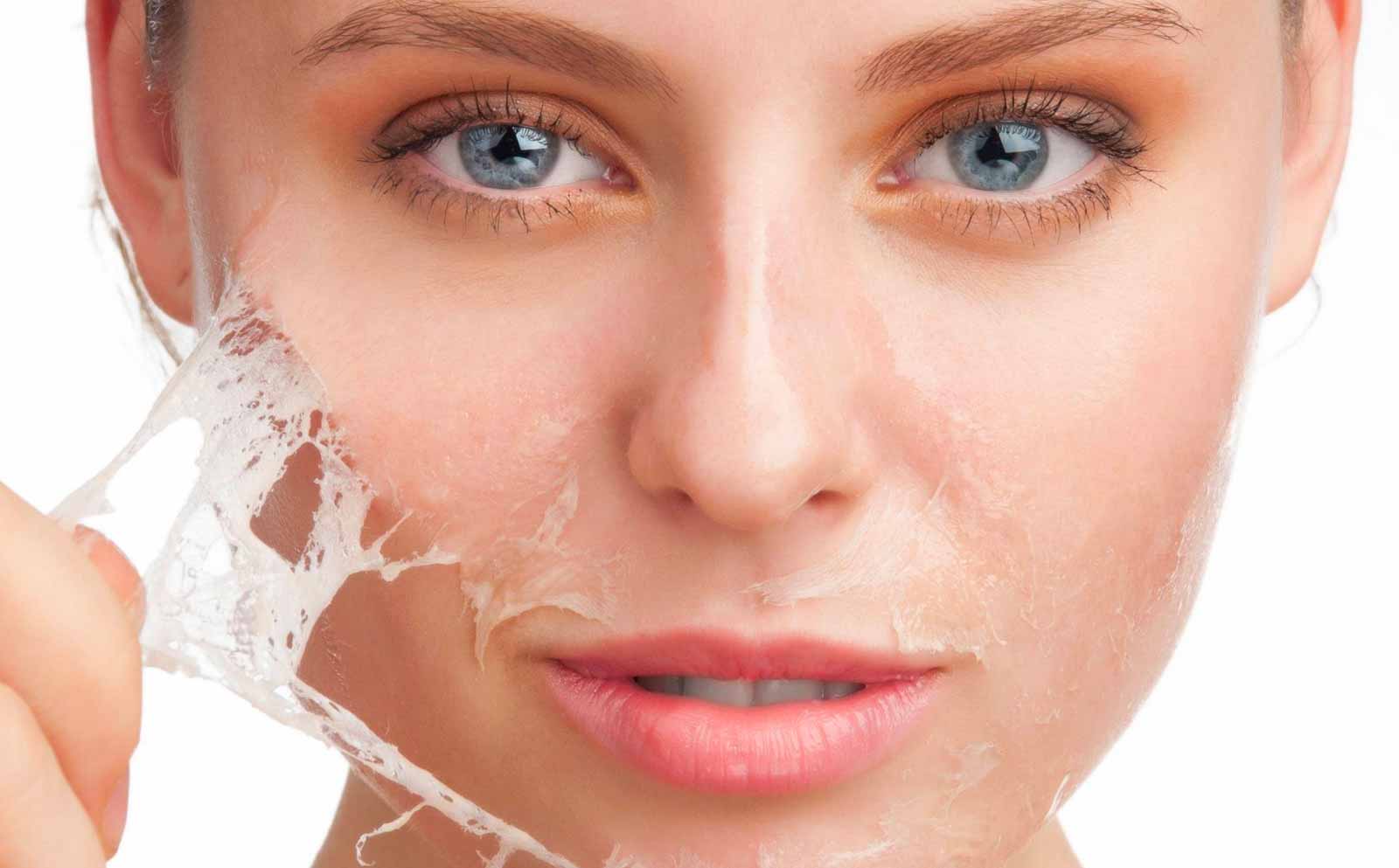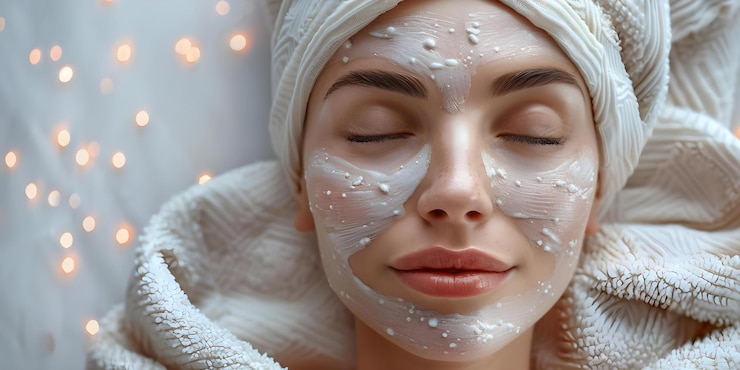Chemical peels have long been a popular cosmetic treatment, known for their ability to enhance the appearance of the skin by exfoliating the outer layers and stimulating cell regeneration. One of the most attractive aspects of Chemical Peels in Dubai is that they can be tailored to suit different skin types and address a wide range of skin concerns. From acne-prone to sensitive skin, chemical peels can offer benefits to almost anyone looking to improve their complexion.
What Are Chemical Peels?
A chemical peel involves applying a chemical solution to the skin, which exfoliates the top layers, revealing smoother, fresher skin beneath. This process helps with concerns such as acne, hyperpigmentation, fine lines, and uneven skin tone. The depth of the peel, ranging from superficial to deep, determines how much skin is exfoliated and how intense the treatment will be.
Chemical peels are often classified into three categories:
- Superficial Peels: These are the mildest type of peel and are suitable for all skin types. They primarily target the outer layer of skin, or the epidermis.
- Medium Peels: These penetrate the middle layers of skin and are used to treat more pronounced issues, such as wrinkles or pigmentation.
- Deep Peels: These reach the deepest layers of skin and provide the most dramatic results but require a longer recovery period.

Benefits of Chemical Peels for Different Skin Types
Normal Skin
For individuals with normal skin, chemical peels provide an easy way to maintain a smooth, radiant complexion. Since normal skin is less prone to irritation, those with this skin type can typically tolerate a variety of peels, from superficial to deeper treatments. Regular peels can help maintain even skin tone, smooth texture, and minimize the appearance of fine lines.
Benefits include:
- Enhanced skin texture
- Brighter, more even complexion
- Reduction of fine lines and wrinkles
Oily and Acne-Prone Skin
Those with oily or acne-prone skin often struggle with clogged pores, breakouts, and excess oil production. Chemical peels, especially those containing salicylic acid, are highly beneficial for controlling oil and exfoliating dead skin cells that can contribute to acne. Salicylic acid penetrates oil-filled follicles, helping to reduce the buildup that causes breakouts.
Benefits include:
- Decreased acne and blackheads
- Reduced appearance of large pores
- Less oily, greasy skin
- Smoother texture due to reduced acne scars
Dry Skin
Dry skin can often appear rough, flaky, or dull, making it a prime candidate for chemical peels that promote hydration and exfoliation. A superficial peel, such as one containing lactic acid, is gentle enough to exfoliate without overly drying the skin. By removing dead skin cells, these peels allow better absorption of moisturizers and other hydrating skincare products.
Benefits include:
- Improved moisture retention
- Smoother, more even skin texture
- Enhanced absorption of hydrating products
- Reduced flakiness and dullness
Sensitive Skin
Individuals with sensitive skin need to be more cautious when choosing a chemical peel, as some acids can cause irritation. However, there are gentle options available, such as mandelic acid or lactic acid peels, which are less likely to cause irritation while still providing exfoliation benefits. These mild peels help remove dead skin cells without triggering redness or inflammation.
Benefits include:
- Gentle exfoliation without irritation
- Calming of redness and inflammation
- Improved texture without harsh effects
- Enhanced skin hydration and softness
Combination Skin
Those with combination skin, which features both oily and dry areas, benefit from chemical peels that address both concerns simultaneously. A peel that includes a blend of acids, such as glycolic or salicylic acid, can exfoliate the oilier areas while also helping to hydrate the dry patches.
Benefits include:
- Balanced oil production
- Smoother overall skin texture
- Improved clarity in both dry and oily areas
- Reduction of breakouts and flakiness
Mature and Aging Skin
As the skin ages, it naturally loses collagen and elastin, leading to wrinkles, fine lines, and sagging. Chemical peels, especially medium-depth ones, are effective for rejuvenating mature skin by stimulating collagen production and promoting cell turnover. These peels can improve the appearance of wrinkles, age spots, and sun damage, making the skin appear more youthful.
Benefits include:
- Reduction of fine lines and wrinkles
- Improved skin firmness and elasticity
- Brightened skin tone by reducing age spots
- Smoother, more even texture
Hyperpigmentation and Uneven Skin Tone
Chemical peels are also highly effective for individuals dealing with hyperpigmentation, dark spots, and uneven skin tone. Ingredients like glycolic acid, TCA, and lactic acid help to lighten dark patches by exfoliating pigmented skin cells. Over time, these peels promote an even, radiant complexion.
Benefits include:
- Fading of dark spots and pigmentation
- Brighter, more even skin tone
- Smoother texture with reduced rough patches
- Overall enhanced complexion
How Chemical Peels Benefit Different Skin Concerns
Acne Treatment
Chemical peels containing salicylic acid are particularly effective for treating acne. These peels penetrate deep into the pores to exfoliate the skin and reduce the buildup of dead skin cells and oil that lead to breakouts. Over time, they can also reduce acne scars by encouraging new skin growth.
Anti-Aging Benefits
Medium and deep chemical peels promote the production of new collagen, which is essential for maintaining firm, youthful skin. As we age, collagen levels naturally decline, leading to wrinkles and sagging skin. By stimulating collagen production, chemical peels help reduce the appearance of fine lines and wrinkles, giving the skin a firmer, more lifted look.
Brightening Dull Skin
For individuals who feel that their skin looks dull or lacks radiance, chemical peels can be a game-changer. By exfoliating the outer layer of dead skin cells, chemical peels reveal the fresh, vibrant skin underneath. This helps to restore a youthful glow and smooth out any roughness in texture.
Treating Sun Damage and Pigmentation
Hyperpigmentation, dark spots, and sun damage are common concerns that can be addressed with chemical peels. The acids used in these treatments help to fade discolored patches by removing the top layers of damaged skin. Over time, this process evens out the skin tone, reducing the appearance of sun spots and discoloration.
How to Choose the Right Chemical Peel for Your Skin Type
Choosing the right chemical peel depends on your skin type and the specific concerns you want to address. Superficial peels are generally suitable for all skin types and are a good starting point for beginners. Medium and deep peels, on the other hand, should only be performed by professionals, as they involve more recovery time and require greater expertise.
It’s essential to consult with a dermatologist or skincare professional before undergoing a chemical peel. They can assess your skin type, understand your goals, and recommend the best peel for your needs. Whether you’re looking to clear up acne, reduce pigmentation, or achieve a smoother texture, a professional can guide you in selecting the most appropriate treatment.
Aftercare for Chemical Peels
After receiving a chemical peel, proper aftercare is crucial to maximize the benefits and minimize potential side effects. Here are some key aftercare tips:
- Moisturize: Use a gentle, hydrating moisturizer to keep the skin from becoming overly dry or irritated.
- Avoid Sun Exposure: The skin is more sensitive after a peel, so it’s essential to wear sunscreen and avoid direct sun exposure.
- Avoid Exfoliants: Do not use other exfoliating products or treatments for at least a week after your peel to allow the skin to heal.
- Be Patient: Your skin may peel or flake for a few days after the treatment, but this is a normal part of the process. Let your skin heal naturally without picking or scrubbing.
Conclusion
Chemical peels offer transformative benefits for all skin types, addressing a wide range of concerns from acne and hyperpigmentation to wrinkles and dullness. With the right type of peel and proper aftercare, you can achieve smoother, more radiant skin and enjoy a clearer, more youthful complexion. Whether you're new to chemical peels or looking to explore more intensive treatments, consulting with a skincare professional will help you tailor the experience to your unique skin type and goals.





Comments